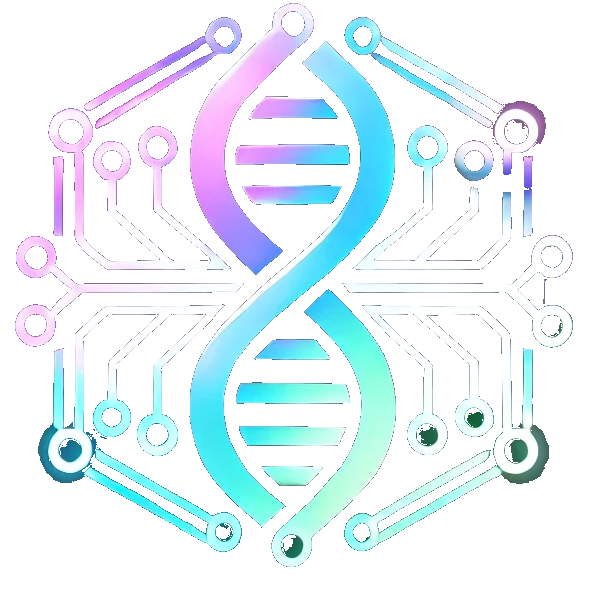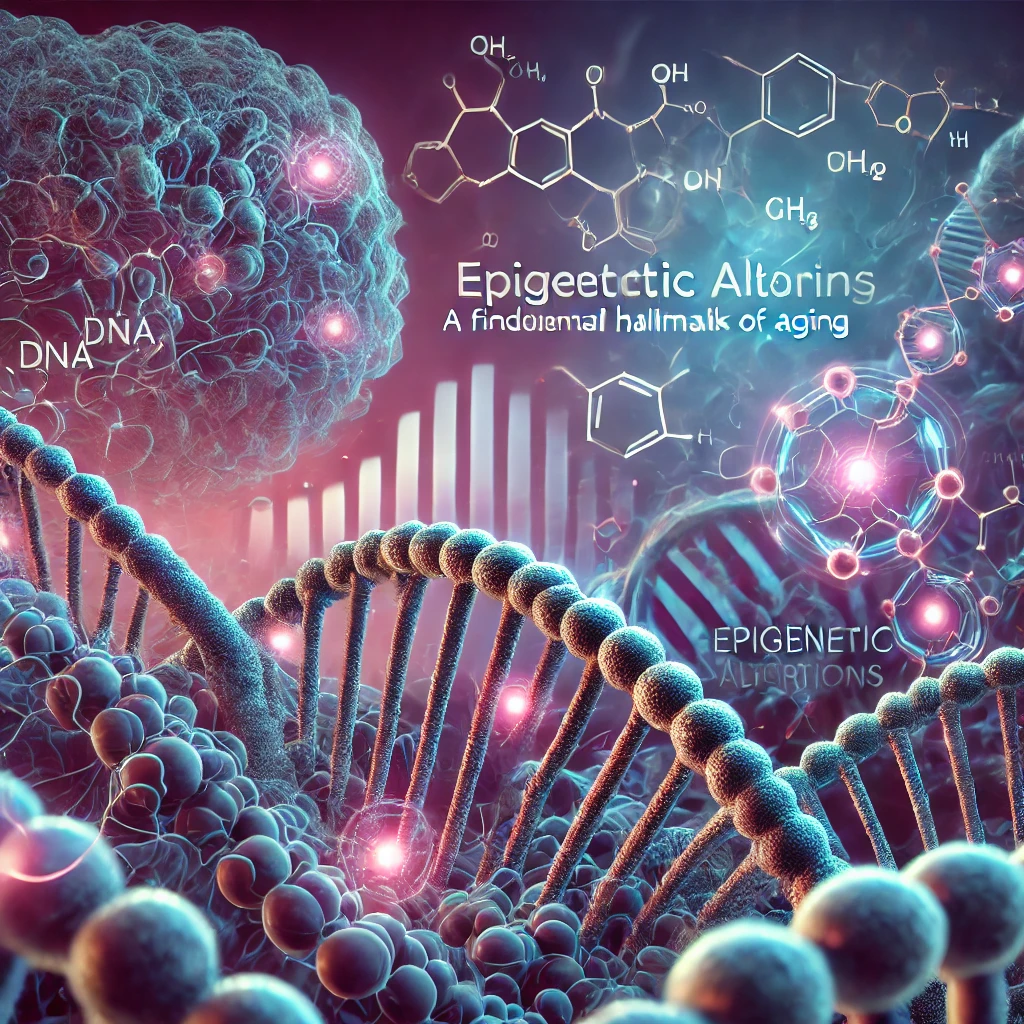Epigenetic Alterations: A Fundamental Hallmark of Aging
Aging is driven by various biological mechanisms, and epigenetic alterations stand out as a critical factor in this process. These changes influence how genes are expressed without altering the underlying DNA sequence, significantly impacting cellular function and contributing to the aging phenotype. This article examines the role of epigenetic alterations, their implications for aging, and potential interventions to mitigate their effects.
What Are Epigenetic Alterations?
Epigenetic alterations refer to modifications of DNA or histone proteins that regulate gene expression. These changes can activate or silence genes without changing the genetic code itself. Key epigenetic mechanisms include:
- DNA Methylation: The addition of methyl groups to cytosine bases, often leading to gene silencing.
- Histone Modifications: Acetylation, methylation, and other modifications of histone proteins affect chromatin structure and gene accessibility.
- Non-Coding RNA: RNA molecules, such as microRNAs, regulate gene expression post-transcriptionally.
With aging, the epigenetic landscape becomes dysregulated, characterized by:
- Global Hypomethylation: Loss of DNA methylation in regions that maintain genome stability.
- Promoter Hypermethylation: Aberrant silencing of critical genes involved in repair and metabolism.
- Histone Modification Imbalance: Altered acetylation and methylation patterns that impact chromatin structure.
These changes lead to the misexpression of genes, cellular dysfunction, and increased susceptibility to age-related diseases.
Potential Interventions for Epigenetic Maintenance
Strategies to counteract age-related epigenetic changes focus on lifestyle modifications, pharmacological approaches, and experimental techniques. Below are the most promising interventions:
1. Lifestyle and Dietary Interventions
- Caloric Restriction (CR) and Intermittent Fasting:
- These dietary strategies have been shown to influence epigenetic markers linked to aging. Caloric restriction can reduce DNA methylation of genes involved in inflammation and promote protective modifications in metabolic genes.
- Exercise:
- Regular physical activity positively reshapes the epigenetic landscape. It modulates methylation patterns and histone acetylation, influencing genes involved in metabolism, inflammation, and cellular repair.
2. Sirtuin Modulation
- Role of Sirtuins:
- Sirtuins (SIRT1-7) are NAD⁺-dependent enzymes that regulate chromatin structure and influence DNA repair, metabolism, and longevity.
- Activators of Sirtuins:
- Resveratrol: Found in grapes, red wine, and some berries, resveratrol activates SIRT1, promoting beneficial epigenetic changes.
- NAD⁺ Boosters: Compounds like nicotinamide riboside (NR) and nicotinamide mononucleotide (NMN) increase NAD⁺ levels, supporting sirtuin activity and epigenetic stability.
3. Epigenetic Reprogramming (Experimental)
- Partial Reprogramming with Yamanaka Factors:
- Yamanaka factors (OCT4, SOX2, KLF4, c-MYC) are transcription factors capable of resetting the epigenetic age of cells. Laboratory studies have demonstrated their ability to reverse aging markers in cells and extend lifespan in animal models.
- Current Limitations: While promising, this approach is still experimental and not yet suitable for human application due to safety concerns, including the potential risk of tumorigenesis.
Challenges and Future Directions
Although interventions targeting epigenetic alterations hold significant promise, several challenges remain:
- Safety: Modulating the epigenetic landscape may have unintended consequences, such as activating oncogenes.
- Specificity: Current tools lack the precision to target specific epigenetic changes without affecting other regions of the genome.
Future research aims to refine these approaches, improving safety and efficacy. Advances in epigenetic editing technologies, such as CRISPR-based tools, offer hope for more precise interventions.
Conclusion
Epigenetic alterations play a pivotal role in aging, influencing gene expression and cellular function. While lifestyle modifications and pharmacological strategies offer accessible ways to maintain epigenetic health, experimental techniques like partial reprogramming present exciting possibilities for the future. As our understanding of epigenetics deepens, these interventions could pave the way for groundbreaking therapies to combat aging and extend the human healthspan.



